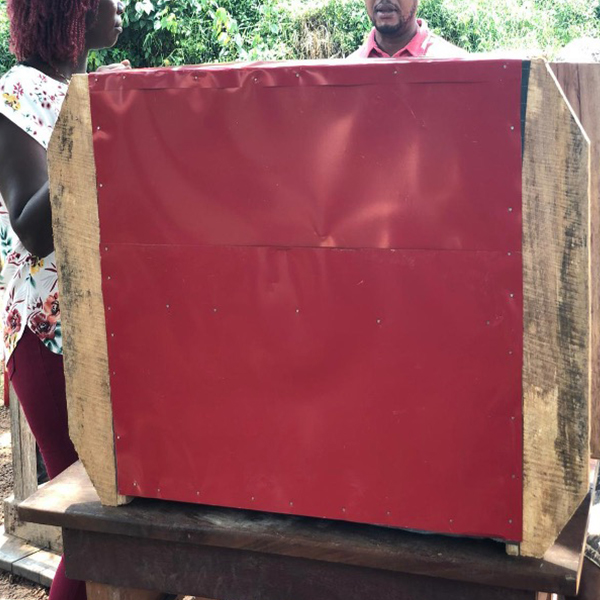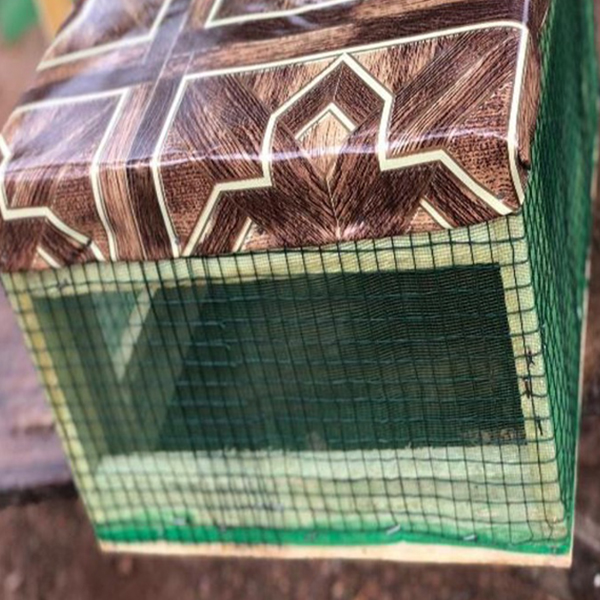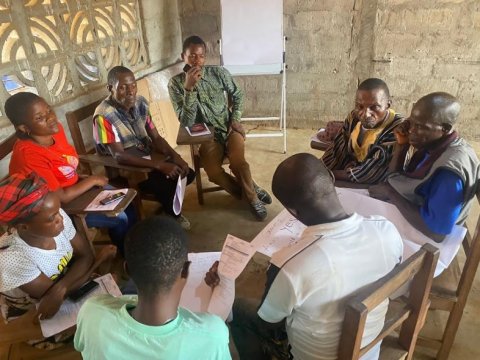By Susan Babirye
The Burden of Lassa Fever
Lassa fever, an acute viral zoonotic illness, continues to be a major public health challenge in Liberia, with cases now reported from formerly non-endemic counties (Woyessa et al., 2019). For the past five years, there has been a steady increase in Lassa fever cases in Liberia, with confirmed case numbers ranging from 14 to 52 cases per year. Between 2016 and 2020, a total of 168 confirmed cases and 70 deaths were reported in Liberia outbreakobservatory.org.
Lassa fever can be transmitted to humans through contact with virus-infected rodent excreta via eating rodent-contaminated food, exposure to contaminated objects, and inhalation of tiny particles in the air contaminated with virus-infected rodent excretions. With no proven licensed vaccines for Lassa fever in humans, current recommendations for the prevention of primary transmission focus on reducing rodent abundance in houses and surrounding spaces, improving sanitation (rodent-proofing houses and/or stored food), and safe handling of rodents during hunting and food preparation (Jetoh, 2022).
National-Level Workshop to Co-Design Physical Barriers and Food Storage for Rodent Deterrence
On August 3, 2023, STOP Spillover Liberia and the OH DReaM team members convened a two-day co-design meeting in Monrovia, Liberia to gather stakeholders at national and sub-national levels to review and provide feedback on STOP Spillover’s proposed structural and social behavioral change (SBC) interventions. The stakeholders discussed the strengths and weaknesses of the proposed interventions and suggested improvements or additional interventions. A total of 17 stakeholders (11 males and 6 females) participated, including stakeholders from various One Health partners and implementing partners such as Ministry of Agriculture (MOA), Environmental Protection Agency (EPA), Forestry Development Authority (FDA), National Disaster Management Authority (NDMA), National Public Health Institute (NPHIL), Ministry of Health (MOH), Social Behavior Change Core Team, Eco Health Alliance, and Breakthrough ACTION.
The main recommendation for both semi-urban and rural households was to build elevated tables with local materials and/or to cover the legs of existing tables with smooth zinc/metal to prevent rodent climbing. An additional method recommended for semi-urban communities was to design a standing cupboard with doors and zinc at the back to prevent rodent access to food since people living in urban communities mostly use cupboards for food storage instead of tables.
Community-Level Co-Design Workshops
Following the national-level co-design meeting, the STOP Spillover country team, in partnership with NPHIL, MOH, and MOA, conducted a four-day co-design workshop for 46 participants at the community level. The meeting participants included community chairmen, administrative assistants, administrative district commissioners, women leaders, youth leaders, carpenters, religious leaders, and household heads from Blegay-Pa in Nimba County, and Compound 3 Christian Community in Grand Bassa County. These workshops aimed to solicit buy-in and locally tailor the proposed interventions to individual households and community environments.
Through the community-level meetings, stakeholders collaboratively designed effective, locally applicable solutions aimed at mitigating the risks associated with the Lassa virus. The intervention design included elevated tables with legs wrapped with metal zinc for water storage, food boxes made of wood and metal zinc for food storage, and geebee and fufu boxes made of wood, mesh wire, and screens. To enhance sustainability and ownership of the interventions, the communities mobilized their local resources by contributing tables for the development of the elevated tables.


Installation of Physical Barriers and Storage Containers in Homes
From September 4-9, 2023, the STOP Spillover country team collaborated closely with stakeholders from two communities–Blegay Pa and Compound 3 Christian Community, including two community chairpersons, four carpenters, and 30 household heads to implement the co-designed rat-proofing measures. The country team visited twelve homes to identify where the physical barriers and storage boxes would be installed, considering factors such as proximity to walls and other objects which could provide a ‘ladder’ to the tables and thus grant the rodents access. To date, 30 selected homes for the pilot phase have benefited from this intervention across two counties (Nimba and Grand Bassa). The pilot will be evaluated, adapted as needed, and scaled up to an additional four communities.
Community representatives expressed their satisfaction and gratitude to the STOP Spillover team for empowering them to find solutions to their problems.
"We have families who have lost the lives of their relatives to Lassa Fever in this community. Seeing us coming up with solutions to solve our own problems is something that makes us very happy, so we say thank you to STOP Spillover.” –Community chair lady, Blegay-pa, Nimba County
The community members in Grand Bassa were excited about being able to continue eating their staple food, fufu, while protecting it from exposure to rats.
"It is our normal practice to leave our leftover fufu open, and even though we see rat footprints on it, we still go ahead to eat it because of our love for this food. Today, we are so happy to have a cover that will stop rats from reaching our fufu.” –Community member, Grand Bassa County
Additionally, community members across the two counties took ownership of the interventions by providing their own tables to be designed with the metal zinc.
"I will give my own table because it is my family who will benefit”. –Community member, Blegay-pa, Nimba County
